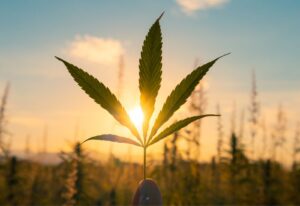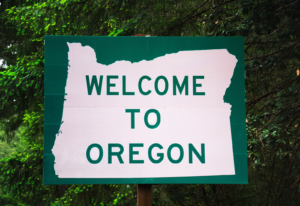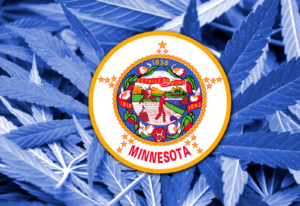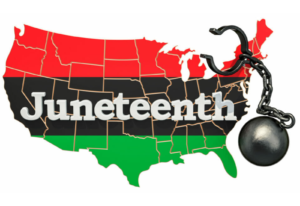Friend of the firm Andrew DeWeese published a recent LinkedIn post on Oregon’s outlying stance on THCA the other day, and the priorities of local industry advocates. I wanted to highlight that post and discuss today– it’s a compelling post and I have all sorts of thoughts about it. Here it is:
Let’s break it down.
“THCA flower is legal under federal law”
Maybe. This is something we have thought a lot about at the firm, privately and publicly. My colleague Griffen Thorne published a sensationally titled piece on this last summer: So Long for THCA Products. Griffen’s article is just one of many parsing the language of the 2018 Farm Bill and a 2023 DEA letter on the topic. See also: THCA and the DEA: Rod Breaks Down the Latest News from Rod Kight, another attorney prominent in the space.
You probably don’t want to read all of that today. So here’s the answer I might give my aunt if she asked whether THCA flower is legal. I would say: “Someone over at DEA wrote a letter last year indicating that it’s not. But DEA is not a court and DEA hasn’t made a rule, either. And DEA often loses in court. Certain learned people also disagree with DEA, which isn’t doing much about THCA flower anyway. It’s on sale all over! Finally, Auntie, the law might change this fall when we hopefully get a new Farm Bill.”
People don’t like answers like that (“lawyer answers”) because lawyers tend to hedge and hate being pinned. Pin me down, though, and I will opine that I don’t think THCA is legal under federal law. THCA converts to Delta-9 THC when heat is applied, and I don’t believe Congress intended to legalize an intoxicating substance when writing the 2018 Farm Bill. I will also acknowledge that this is one of the more muddled areas of controlled substances law. It’s up there with the Federal Analogue Act, which arguably requires that chocolate must be recognized as the legal equivalent of heroin. These statutes are so miserable.
From a practical perspective, with respect to THCA, I think the three most important considerations are: a) there has been no federal enforcement to speak of with respect to THCA flower or products; b) federal law will likely change this year, because again, I don’t think Congress intended to legalize gas station weed back in 2018; and c) states have weighed in. Which brings us to the next statement.
“But not in Oregon”
Andrew is correct that Oregon is one of few states to require a total THC concentration testing standard. When Oregon adopted that standard in 2019, it seemed to fly under the radar, though we did our best to publicize it here on the blog. Almost five years later, I’m not sure how well understood this is. I still get frequent requests for representation from Oregon sellers of THCA products, and I must decline to represent those sellers given the lack of any safe harbor under Oregon’s lawyer ethics rules (at least in my view).
But it’s not just state testing requirements people need to understand. Several states outright prohibit products containing THCA from being bought, sold or consumed within their borders. This means that anyone trafficking in THCA products must pay very close attention to state and local law, in addition to getting comfortable with the problematic federal paradigm. Too many THCA advocates simply say “it’s legal federally” and turn off their brains. Which can be a regrettable course of action when you’re pulled over by highway patrol and your truck smells like weed… certificates of analysis, permits, etc. notwithstanding.
“Oregon could essentially have interstate commerce in weed, now”
To achieve parity with THCA friendly states, yes, Oregon would need to change its regulatory structure– starting with a repeal of the total THC concentration testing standard. But Oregon will not. This isn’t because the state lacks interest in interstate commerce solutions for the cannabis industry. Oregon was the first state to sign a marijuana export bill back in 2019. More recently, the OLCC seemed to support to an interstate commerce proposal on marijuana seeds and intoxicating hemp products.
So why don’t the doors open for THCA? The short answer is the two efforts I mentioned just above are on the marijuana side of the equation. Hemp has been hollowed out in Oregon, as I explained in in December. To that end, and in response to the LinkedIn post mentioned at the top of this article, cannabis economist Beau Whitney offered these dismal statistics:
Oregon hemp acres licensed (not necessarily planted or harvested)
2019: 64,142
2023: 2,417
2024: 55 (so far)
We don’t have much hemp being planted in the state anymore and hence, we don’t have much of a hemp lobby. All legislative conversations around hemp for the last several years have centered on local enforcement against THC growers masquerading as hemp licensees. And even when hemp was riding high five years ago, we somehow ended up with the total THC concentration testing standard.
“Instead the only cannabis bill in the short session is a license moratorium and a bunch more enforcement”
Fair statement. The reference here is to House Bill 4121, which has been moving briskly through the legislature and is headed for the ways and means committee. For more information, I gave a detailed tour of HB 4121 last week.
OLCC licensees seem bent on dealing with market saturation issues and protecting the value of their licenses. And for good measure: no one wants to deal with excessive competition, and the state treats these licenses like fungible commodities on a viable, secondary market. If OLCC starts issuing new licenses, the value of previously issued licenses drops from $20K or $30K or $40K to $0.
We’re now down to just one trade organization in Oregon, CIAO, whose board chair is on payroll for the state’s largest retailer. Big retailers have always pushed cannabis policy in Oregon, for better or worse; but this is one where everyone probably agrees. And to be honest, there just isn’t much energy for anything else nowadays. Especially the right to grow intoxicating hemp products of questionable legality under federal law.
Need Help With Oregon Cannabis Law?

























